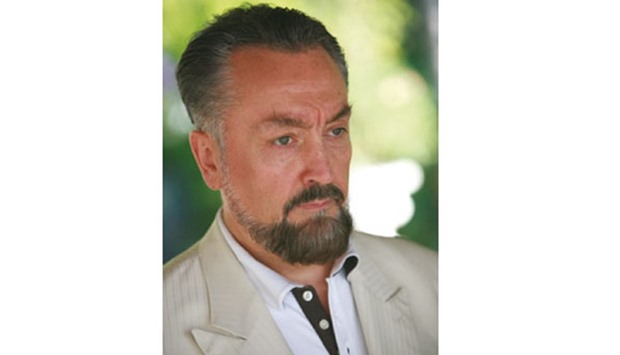Our world is in conflict in almost every corner drawing a number of nations into some level of warfare, instability and inevitably, terrorism. In the heart of this firestorm lies the Middle East, spreading over a transcontinental region often referred to as the “Cradle of Civilisations”. This particular part of the world has played a crucial part globally in terms of politics, strategy, religion, culture and economics. Yet, today we see that this historical accumulation woven with the contributions of many of the greatest states and empires from all faiths and nations is being destroyed both by the bloody actions of terrorist groups and radical organisations and the military interventions of foreign powers.
Looking deep into the truth of the matter in regard to the issues in the Middle East, we see that superstitions, fabricated hadiths and bigoted beliefs that have no place in Islam are the main reasons of the terror, violence and fragmentation that encompasses the entire region.
The main problem of the Arab world is not radical militants, but the radical ideology within their minds and brains. The adherents of this radical and bigoted system have in fact abandoned the core essence and spirit of Islam and the Qur’an and have thus been misled to violence, hatred, wars and suffering between sects and various groups.
What needs to be done is not to wipe out the followers of this deviant mindset but to eradicate the fanaticism and bigotry that emerge in the name of true religion.
Incorporating the beauties of love, compassion, brotherhood, unity and harmony, religion is the assurance of peace, prosperity, human rights, social justice, democracy, freedom and equality for all of humanity.
If the societies in the Middle East had lived perfectly in compliance with these superior values of Islam, that would be the end of all the bloodshed, hostility and troubles in the region. There is definitely no place for pressure and compulsion in Islam. Freedom of religion, faith and thought perfectly complies with the Qur’an.
Knowing that religion shapes the Arabic and Middle Eastern cultures, and has a huge impact on all spheres of life such as politics, economics, law, culture, science, art, and education, it is not possible to bring a solution to the problems in the Arabic world without incorporating religion.
In the Middle East, everything is based on Islamic traditions and almost the entire region carries motives based on Islam. Therefore, it is essential to place religious values at the centreof any resolution in the Middle East.
That is why strict military policies and bombs are not the key to peace, tranquility and security as desperately awaited by millions of people for many long years. Quite the contrary, violence only yields more violence.
Smart bombs and modern warfare have always fostered more hatred, rage, and radicalisation. Radical organisations that are the main reasons of instability and confusion continue their attacks and gain more followers.
The deeply-rooted problems of the Middle East can be solved with diplomacy, reconciliation and love rather than war, conflict and hatred. Diplomatic and peaceful methods should be continuously employed until peace is achieved.
This necessitates the communication of real Islam to wipe away the mistaken beliefs that have sprouted in some people’s minds. Societies are in need of a spiritual education and must be revived spiritually. This spiritual education should definitely be an education based on the Qur’an and not on the fabricated hadiths that lead the masses to radical ideas.
As is known, clergymen and spiritual leaders are important in Arab societies; they are cultural ambassadors and opinion leaders. Of course it is very important for these cultural ambassadors to be sincere, rational people acting with the spirit of love and compassion.
The existence of leaders who live, preach and exemplify the moral values of the Qur’an in the best way is the key aspect for solving problems.
Therefore, they would play a substantial role in this education. Indeed, most of the time the role of religious leaders are more important than politicians, academicians, artists, international media pundits or corporations in the Middle East.
To that end, the spiritual leaders of the Middle East can become the real saviors of the region by embracing a language of love, unity, brotherhood, understanding, peace, and by carefully avoiding speeches that will provoke hatred, rage and hostility.
In order to efficiently break major deadlocks, they may attain meaningful and fruitful results based on sound religious values that demand peace and good conduct between all parties.
During these difficult days that the region is passing through, all efforts should be made and supported for encouraging this massively under-appreciated method of moral diplomacy to repair the broken relations and bring about the anticipated security, stability and welfare. Those taking part in this diplomatic effort will be the real contributors to peace in the Middle East.

Harun Yahya
